fake Utah ID
Introduction
Fake IDs have been part of popular culture for decades, whether it’s underage individuals looking to enter clubs and buy alcohol, or novelty seekers wanting to possess a fake ID as a gag or souvenir. Among the various types of counterfeit identification available, fake Utah IDs stand out for their high demand and specific features that make them a favorite among users. The production, sale, and use of these IDs, though illegal in many jurisdictions, continue to thrive due to the underground market's adeptness at mimicking real government-issued documents.
This article provides an in-depth exploration of fake Utah IDs, their specific characteristics, market demand, and the profiles of individuals most likely to seek out these IDs. We will analyze how fake Utah IDs are produced, what sets them apart from other fake IDs on the market, and why the Utah identification format presents unique challenges and opportunities for counterfeiters. Furthermore, we'll explore the target audience for these fake IDs and the market dynamics that drive their popularity.
1. What Makes a Fake Utah ID Unique?
Fake Utah IDs are distinguished by their attempt to replicate the real Utah driver's license or state ID card with near-perfect accuracy. Utah's official IDs have a set of features that are complex, making it difficult yet not impossible for counterfeiters to replicate.
- Design Layout and Information: The Utah ID contains specific designs, like the state seal, landscapes of Utah's national parks, and layered holographic images, which contribute to its distinct appearance. Fake IDs often seek to replicate these design elements.
- Security Features: The real Utah ID uses advanced security features such as microprinting, UV-reactive ink, and holographic overlays to deter counterfeiting. High-quality fake Utah IDs incorporate some of these elements but may lack precision in certain security markers.
- Material Quality: Legitimate Utah IDs are made from durable polycarbonate material, making them difficult to replicate precisely. However, sophisticated counterfeiters use high-grade materials to get close to the original.
- Barcodes and Magnetic Strips: Modern Utah IDs include barcodes and magnetic strips that contain encoded information. Well-made fake Utah IDs often duplicate the physical barcode or strip, though they may not always encode valid data.
While genuine Utah IDs undergo multiple levels of security testing, fake IDs typically pass low-level scrutiny but may fail under close inspection. Still, the craftsmanship and attention to detail in producing these fakes have improved over the years, making it increasingly challenging for authorities and institutions to distinguish between real and counterfeit Utah IDs.
2. Market Analysis: Supply and Demand for Fake Utah IDs
The market for fake Utah IDs can be understood by looking at both the demand for these products and the supply chain that sustains it. Several factors contribute to the popularity of Utah IDs within the broader market for fake identification.
- Underground Marketplaces: Fake Utah IDs are commonly sold through dark web platforms and specialized online vendors who advertise on social media. These vendors have developed complex networks for distributing counterfeit documents across state and national borders.
- High Demand from College Students: A significant portion of fake ID buyers are college students who use these fake IDs for underage drinking, club entry, and other activities restricted by age. Utah’s large student population, including at the University of Utah and Brigham Young University, contributes to the demand for fake Utah IDs.
- Tourist and Entertainment Hubs: The presence of ski resorts, national parks, and a robust tourism industry also fuels demand for fake Utah IDs, as young tourists and visitors seek to partake in nightlife activities without being restricted by age limits.
- Global Appeal: Beyond Utah’s borders, fake Utah IDs appeal to buyers in other states and even abroad due to the state’s relatively simple design (compared to high-security states like California or New York), making it a more achievable counterfeit for many forgers.
On the supply side, technological advancements in digital printing and manufacturing have made it easier for counterfeiters to produce high-quality fake IDs at a lower cost. These IDs are often sold at varying price points, depending on the level of detail and sophistication involved in their production.
3. The Target Audience for Fake Utah IDs
Understanding the target audience for fake Utah IDs helps explain why these counterfeit documents remain so popular despite legal risks. The following groups are the primary consumers of fake IDs:
Underage Students and Teens: The most obvious demographic is young adults under the legal drinking age (21 in the U.S.). Many college students use fake IDs to purchase alcohol, enter bars, or participate in age-restricted activities. In Utah, where alcohol laws are stricter due to the state's cultural and religious background, the demand for fake IDs is particularly high among this group.
Tourists and Out-of-State Visitors: Utah is a major destination for tourists, especially for activities like skiing, hiking, and attending events. Younger tourists who wish to avoid age restrictions often look for temporary fake IDs to enhance their vacation experience.
Nightlife Enthusiasts: Despite Utah's conservative laws, cities like Salt Lake City have a thriving nightlife scene. Younger adults who want to experience this part of the state’s culture may seek out fake IDs to circumvent age-related entry restrictions.
Immigrants and Undocumented Individuals: Some individuals who are not legally permitted to hold a state ID, such as undocumented immigrants, might resort to fake IDs for basic identification needs. These IDs are often used in non-official capacities or in cases where presenting any form of ID is necessary.
Novelty Seekers: Some buyers purchase fake IDs purely for fun or as a collector's item, seeing them as novelty products rather than tools for illegal activity.
4. Risks and Legal Implications of Using Fake Utah IDs
While fake Utah IDs can be highly effective in certain situations, the risks involved in using them are significant. Both legal penalties and personal consequences can arise from being caught with or using a counterfeit ID.
- Legal Consequences: In Utah, using a fake ID is a criminal offense. Penalties can include fines, community service, probation, and even jail time in serious cases. The severity of the punishment often depends on how the ID was used (e.g., purchasing alcohol vs. engaging in identity fraud).
- Repercussions for Vendors: Those who produce and sell fake IDs face even harsher legal penalties, including federal charges related to forgery and identity theft. Many vendors operate outside the U.S. to avoid local law enforcement, but they can still be pursued by federal agencies such as the FBI and Homeland Security.
- Reputation Damage: Getting caught with a fake ID can have long-term personal consequences, especially for students and young professionals. A criminal record can affect employment opportunities, academic standing, and social reputation.
5. Technological Advancements in Fake ID Production
One of the reasons fake Utah IDs have become more difficult to detect is the increasing sophistication of the technology used to create them. As law enforcement and government agencies introduce new security features in official documents, counterfeiters are quick to adopt new tools to stay ahead.
Digital Printing: High-resolution digital printers are now capable of replicating complex design elements, including holograms and microtext, which were previously impossible to forge. These printers, often available commercially, allow counterfeiters to produce fake IDs that are nearly indistinguishable from the real thing.
UV Ink and Holographic Technology: Many fake Utah IDs now include UV-reactive ink and holographic images that mimic the real security features of government-issued IDs. While these features may not hold up under advanced scrutiny, they are often enough to pass a casual inspection or be scanned by outdated verification systems.
Data Encoding and Magnetic Strips: Some high-end fake IDs also include functioning magnetic strips and barcodes, making them scannable at retail points of sale or in other situations that require ID verification. However, the data encoded in these strips is often generic or nonsensical, which could trigger suspicion during more rigorous checks.
6. Ethical Considerations and Social Impact
The production and sale of fake Utah IDs raise ethical concerns that go beyond legal implications. Counterfeit IDs are often associated with underage drinking and illegal activities, but the impact of this underground industry extends further.
Facilitation of Illegal Activities: While many users of fake IDs are simply seeking access to alcohol or nightlife venues, some may use them for more serious offenses, including fraud, identity theft, and other criminal activities. This puts a strain on businesses and government agencies responsible for enforcing security measures.
Cultural and Societal Impact: In Utah, where alcohol regulations are stricter due to the state's predominant religious and cultural norms, fake IDs directly undermine local efforts to control alcohol consumption and enforce legal drinking age limits. This creates tension between different segments of the population and complicates efforts to balance personal freedom with social responsibility.
Risk to Businesses: Businesses that unintentionally accept fake Utah IDs face legal liabilities, fines, and potential reputational damage. Establishments that serve alcohol, in particular, are at risk of losing their liquor licenses if caught accepting fake IDs on multiple occasions.
Conclusion
Fake Utah IDs represent a unique segment of the larger counterfeit identification market, driven by both local demand and international production capabilities. While these IDs may offer short-term benefits for those who use them, the legal, personal, and ethical risks far outweigh the potential rewards. As technology evolves, both counterfeiters and law enforcement agencies are engaged in a constant battle to outsmart one another. However, it's clear that fake IDs, including fake Utah IDs, will continue to be a part of the underground economy as long as there are age restrictions and identity verification requirements.
In this complex environment, consumers, businesses, and authorities alike must remain vigilant in addressing the challenges posed by counterfeit IDs, ensuring that both legal frameworks and enforcement strategies evolve alongside the changing landscape of fake identification production.
 fake university id
fake university id
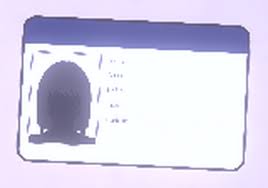 fake identity card generator
fake identity card generator
 what should my iss be on a fak
what should my iss be on a fak
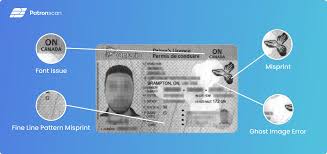 what should iss be on fake id
what should iss be on fake id
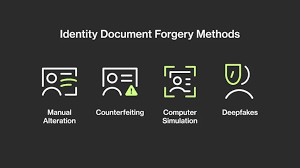 fake Utah ID
fake Utah ID
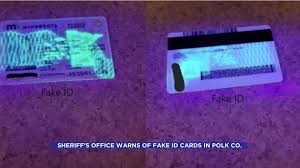 fake Florida ID
fake Florida ID
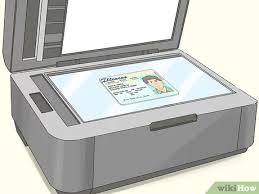 where do people get fake ids
where do people get fake ids
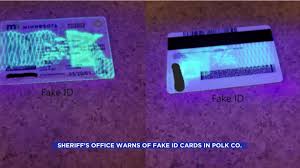 West Virginia Fake ID
West Virginia Fake ID
